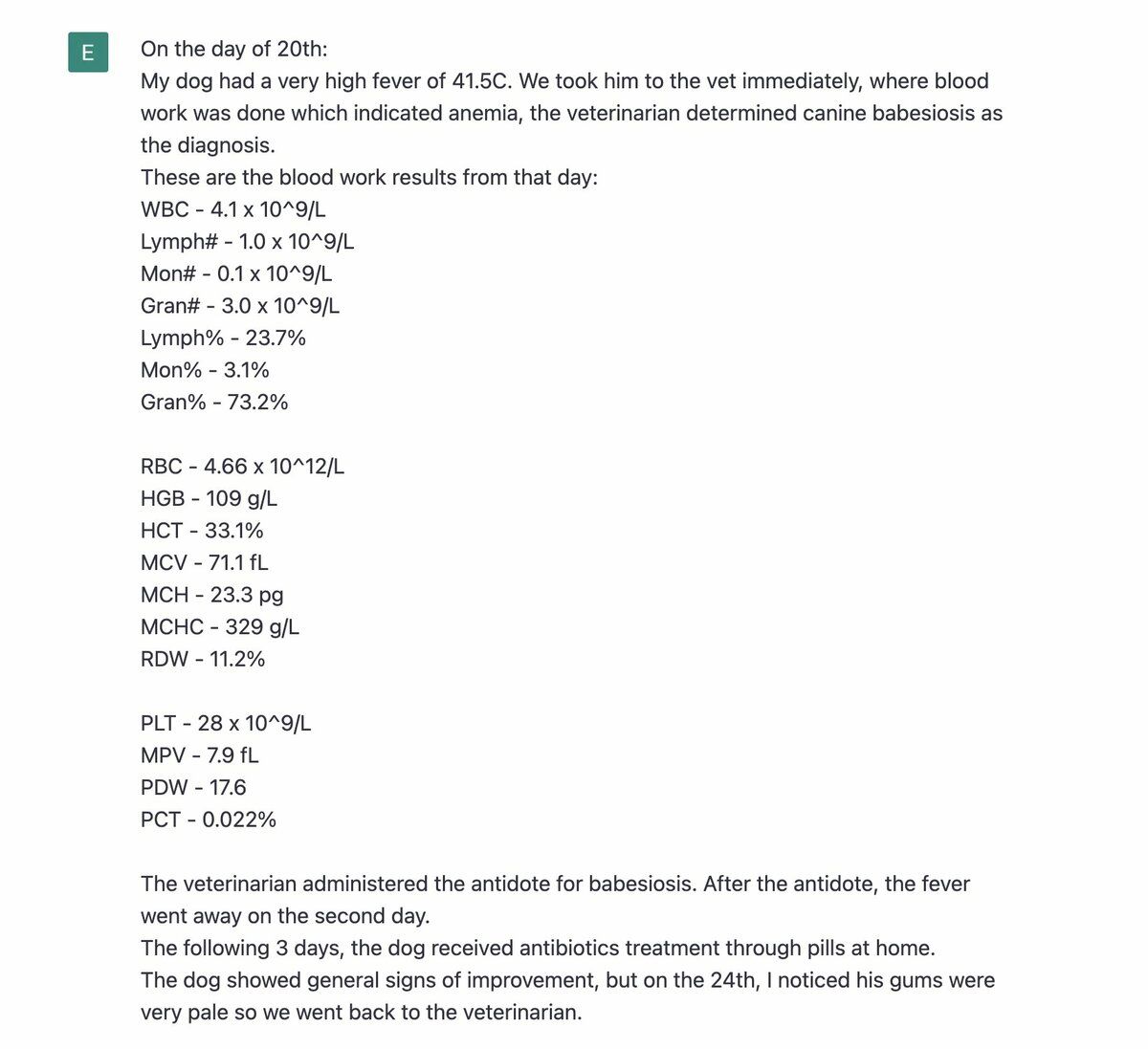Hello 👋 Welcome back to Weekend Rounds - a little something we like to send most weekends so that you can be the best version of yourself at work.
If you're Iron Man, we're the suit. If you're Bond, we're Q. If you're Hermione... we're... forget that, Hermione is a badass all on her own.
Here's what's going on this week:
🤖 How ChatGPT "saved" a dog
🇨🇦 Canadian provinces tackle the vet shortage
🚀 Quick hits
ChatGPT, DVM
The darling of 2023 strikes again. That's right, Artificial Intelligence is back making headlines and this time it is squarely in our wheelhouse. If you thought Dr. Google was bad just wait until you hear about Dr. GPTYesterday, Twitter user Cooper (@peakcooper) took to the platform to claim that chatGPT-4 saved their dogs life. Here's what happened:
Sassy (the dog) was diagnosed with a tick-borne disease (Babesia), and despite a serious anemia, the initial treatment prescribed seemed to be working
After a few days, Cooper noticed that Sassy's gums were very pale. He took her back in for more tests which revealed even more severe anemia
Sassy's vet was not sure what it could be, so they suggested a wait and see approach, but in the meantime Cooper turned to ChatGPT for help
Here's where things get a little interesting. The dog's owner fed as much detail as possible to GPT-4 including the timeline, all tests run and the full bloodwork results. Here are the screenshots:


And sure enough, despite a quick disclaimer, GPT-4 suggested that there could be underlying issues including hemolysis from IMHA. Cooper took Sassy to a new vet and asked if it could be IMHA. After drawing blood and running more tests, it appears GPT-4 had the correct diagnosis and Sassy was prescribed the proper treatment.
No one here is blaming the vet. There is always more to the story. But this is interesting stuff.
Put simply: an AI large language model was able to accurately read bloodwork, rule out possible causes based on previous tests run, and put forward possible underlying causes for the presenting symptoms.
That's a lot to think about. Its also a whole new tool in the pet owner's tool kit. Googling anemia and Babesia is one thing, but the ability to analyze bloodwork is a whole new ball game.
Of note, the free ChatGPT, which is based on GPT-3 does not seem capable of this. But the new version, now integrated into Bing's search engine does.
There's no doubt that AI models are not a replacement for veterinarians. But this highlights the ongoing importance of understanding and using the technology. How would you react if a client showed up with a print out of a suggested diagnosis from ChatGPT?
Canada expands vet training
Announcements from two provincial governments in Canada are addressing the veterinary shortage, by providing funding and for universities to mint more new vets in the coming years. In Ontario, $44.9 million have been earmarked to support the University of Guelph in expanding its veterinary training program enabling it to graduate an additional 80 veterinarians annually - double the current capacity. The funding will be used to increase the number of veterinary students accepted into the program, enhance clinical training facilities, and support research in veterinary medicine. In partnership with Lakehead University, the expansion of the program is aimed at addressing the growing demand for veterinary services in rural areas where the shortage of veterinarians is particularly prevalent.Over on the west coast, the British Columbia government has announced a $21.8 million funding boost to subsidize spots at the Western College of Veterinary Medicine (WCVM) for prospective DVMs hailing from BC. The funding will be used to support the development of a new distributed veterinary learning program that will allow students to study in BC while completing their training at the WCVM in Saskatchewan, and is expected to permanently double the spots available each year to 40. These changes won't solve all our problems over night, but that won't stop us from celebrating the progress. Hopefully the schools also take due consideration in supporting their faculty to deal with the increasing demand.Disclaimer: Obi Veterinary Education is a proudly Canadian company and has participated in the University of Guelph Accelerator through the Research Innovation Office.
Quick Hits
Here are some stories we're following this week from around the veterinary world and animal kingdom:
Purina expands recall of therapeutic diet for dogs [VIN]
After pandemic pet boom, owners struggle with rising costs of veterinary care [PBS]
Xylazine found in street drugs [CBS]
On the Ethics of Preserving—and Cutting Short—the Life of a Pet [LitHub]
Veterinary student research fellowships [DVM360]
Canada needs to keep genetically engineered animals out of the wild, group says [Global]
Guiding animal depopulation is complex, daunting [VIN]
When The Pandemic Came, The Zoos Shut, And The Animals Began to Act Differently [Science Alert]
Singapore: The penguins given world-first cataract surgery [BBC]

